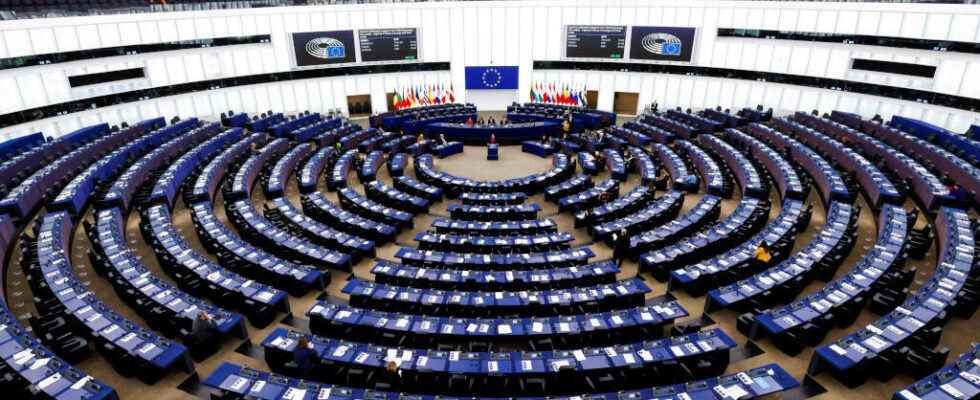The European Parliament has just passed a resolution denouncing the attacks on freedom of expression in Morocco on the deterioration of the conditions for exercising journalism.
It is the first time in 25 years that the European Parliament votes for an emergency resolution on human rights in Morocco. Usually, as Christophe Deloire, secretary general of RSF says, there is a ” unfortunate trend “to exempt the Cherifian kingdom from” any remarks on attacks on the freedom of the press “.
We prefer to see in this friend of France a commercial partner or even a place of tourism and vacation. And few Europeans want to know why Morocco is just behind Algeria, in 135th place on the press freedom ranking. Even Sudan or Libya are doing better than him.
Morocco in the crosshairs of Belgian justice
Of course, and this is also what explains why the resolution was adopted by an overwhelming majority – 356 votes for and 32 against – this position taken by the European Parliament comes in a context: that of “Marocgate”. If we especially remember Qatar in this affair of corruption of European parliamentarians which led to the arrest of the former MEP Pier Antonio Panzeri, the fact remains that it was Morocco which was targeted by Belgian justice.
In an attempt to prevent the resolution on human rights, Moroccan lobbyists have also tried to argue in Strasbourg that one could not rely on media reports to overwhelm a country.
Journalists worried by Moroccan justice under false pretexts
This says a lot about the kingdom’s disregard for independent journalists. One of them, Omar Radi, winner of the RSF prize, was sentenced to six years in prison on appeal last year after having already served two years in prison. He is accused of rape or sexual assault, when it is not “human trafficking”, like his colleagues Taoufik Bouachrine or Souleiman Raissouni – from the daily newspaper Akhbar al-Yaum, disappeared in 2021 – who are serving 15 and 5 years in prison respectively. Convenient allegations, in the middle of the #MeToo era to dissuade journalists from investigating.
As a result, despite a 2016 Press Code, which abolishes prison sentences for press offences, legal proceedings are initiated under false pretenses against troublesome journalists. According to RSF, the highly sensitive subjects are called corruption, Western Sahara, the monarchy, Islam, even the management of the pandemic.
The situation is aggravated by the fact that independent media suffer from very limited access to resources, especially advertising. Finally, the resolution explicitly denounces the surveillance to which Omar Radi and other journalists have been subjected through the spyware Pegasus, with the desire thus to go back to their sources.
